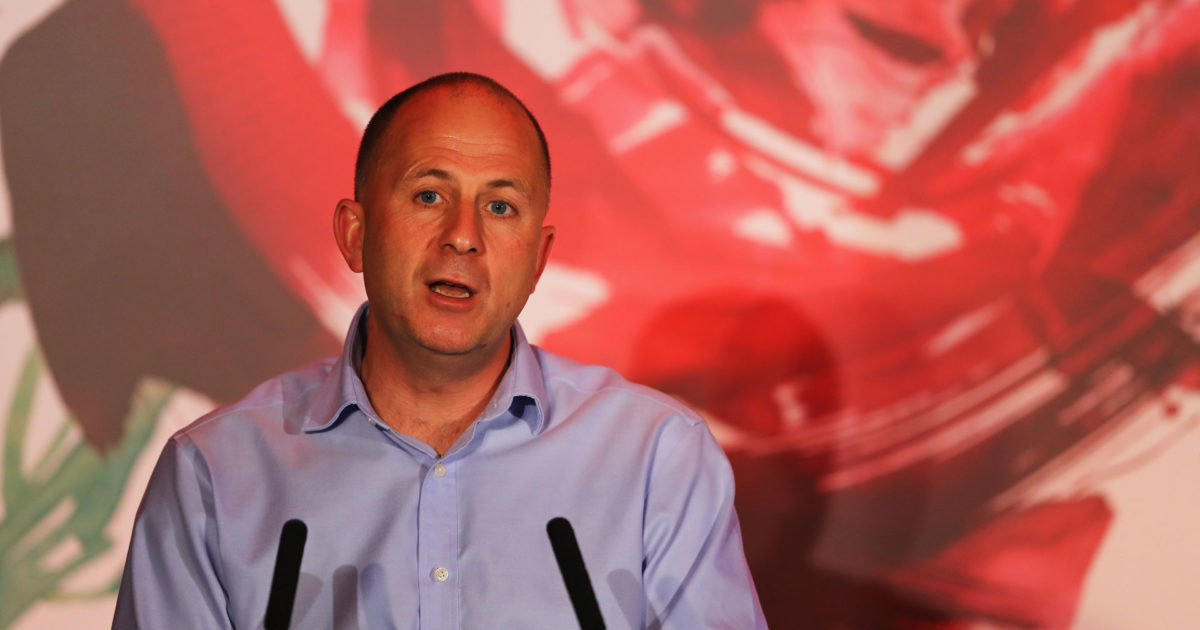Non-contact rugby could be the short-term solution in England

Plans are being drawn up for rugby union in England to be played without scrummaging, tackling and mauling next season to increase the likelihood of some form of the game returning if the Covid-19 lockdown is eased.
An internal working group at the England Rugby Football Union is understood to be working on a number of variations of what is being described as ‘rugby activity’ – focusing on reducing the levels of contact in the sport to encourage players to return to their clubs next season even if full contact is not permissible because of continuing social distancing measures.
In New Zealand, the plans for rugby post-Covid-19 have yet to be revealed but once the government announces Level 2 restrictions today it is believed works will begin across how professional and grassroots rugby will look.
In England, a range of phased activities are being considered, starting from social-distanced training to forms of competitive touch rugby and a shortened version of the game similar to X-rugby, played on half a pitch with limited contact.
Given the intensity of the contact involved in scrummaging, tackling and mauling, there is a growing acceptance that these will be the last aspects of the sport that are allowed to return in the community game and may not be possible until next year.
“By rugby activity we are definitely not talking about 15-a-side, full-on contact rugby,” said Steve Grainger, the RFU’s director of rugby development.
“There are a whole range of activities that you could create without having 16 people in a scrum.
“That is probably the most invasive and intensive form of contact that we are going to have. Or a pile of people in a ruck.
“Those are the things I think that are quite hard to see your way past with the sort of virus that we have had. They seem like they will be the last things to come back.
“We are looking at staging posts all the way along that – from a situation where a group of people can start to handle a ball together through to a situation where a group of people can start to challenge another group of people with a ball in their hands.
“I think we will get to a situation with a non-contact or limited contact variant of the game such as X-rugby. The return of contact activity will then engineer when the competitive programme can start.”
There are also concerns within the governing body that even if UK Government directives allow rugby to return to full contact next season, players may be put off returning because of the public health concerns.
https://www.instagram.com/p/B_1m5ozg8qU/
A nationwide consultation process across England is also expected to be rolled out over the summer to gauge the level of interest from grass-roots players to return to full contact rugby.
“Even when [full contact] is permitted, it will be assessing people’s appetite to actually engage in it,” Grainger added.
“If we are going to try to get 30 people back onto a community rugby pitch in a local community somewhere and 16 of them plus two scrum-halves know that they have got to get pretty close to each other on a fairly regular basis, you only need 25 per cent of them to say ‘no thanks’ and all of a sudden you have not got a game.”
“Once lockdown starts to get lifted the other piece of work we will start to gradually do is talk to and hear from players about what they feel is their degree of appetite and tolerance to get back involved.
“We are reckoning that we are going to need between four to six weeks from contact training to be able to get going to competitive rugby happening. There will probably be some differential between National One and Level 12 because the demands on the players will be very different.”
The return of mini and junior rugby, the areas that are generally thriving in most grass-roots clubs, is also uncertain because of parental concerns.
“I sat in endless meetings where the talk was about wanting homegrown talent, people from Bath – yet I didn’t get given an opportunity”
– @FreddieBurns tells @heagneyl how it fizzled out for him at @bathrugby and why @shokki is an adventure he craves ???https://t.co/c3Iqqo3so2— RugbyPass (@RugbyPass) May 6, 2020
“Whatever happens, 2020-21 is going to be a transition season,” Grainger added. “If we have a group of nine-year-olds who play no rugby because parents don’t want them in that environment, we have got to keep them engaged, interested and motivated in the game and if we do that we have to have every confidence they will come back in the following season.”
Another RFU working group is also examining competition structures from National One and below if the season is not able to start as scheduled, including the worst case scenario of abandonment.
“We have a couple of groups established who were already looking at the options and scenarios for competition programmes, one in the age-grade game and one in the adult game because again clearly if we can commence in September, the programme at least can commence,” Grainger added.
“But if we get into October, or worse still into January, the pressure on the season, the position of cup and representative rugby will have to be carefully considered.
“That group is going to have to consider everything from a fully operational normal league programme right through to total abandonment of the league programme and just let clubs play when they can.”

























